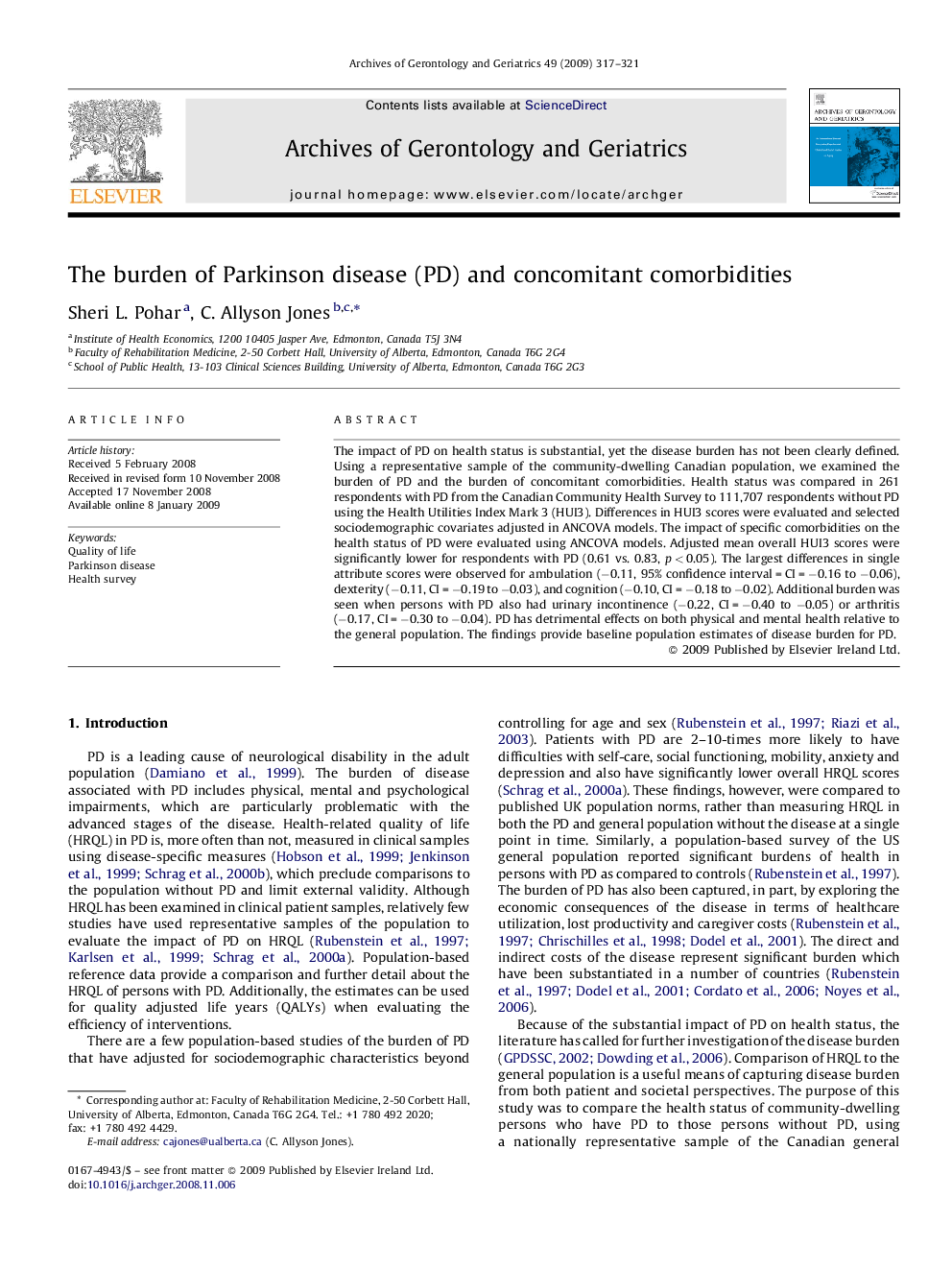| Article ID | Journal | Published Year | Pages | File Type |
|---|---|---|---|---|
| 1903896 | Archives of Gerontology and Geriatrics | 2009 | 5 Pages |
The impact of PD on health status is substantial, yet the disease burden has not been clearly defined. Using a representative sample of the community-dwelling Canadian population, we examined the burden of PD and the burden of concomitant comorbidities. Health status was compared in 261 respondents with PD from the Canadian Community Health Survey to 111,707 respondents without PD using the Health Utilities Index Mark 3 (HUI3). Differences in HUI3 scores were evaluated and selected sociodemographic covariates adjusted in ANCOVA models. The impact of specific comorbidities on the health status of PD were evaluated using ANCOVA models. Adjusted mean overall HUI3 scores were significantly lower for respondents with PD (0.61 vs. 0.83, p < 0.05). The largest differences in single attribute scores were observed for ambulation (−0.11, 95% confidence interval = CI = −0.16 to −0.06), dexterity (−0.11, CI = −0.19 to −0.03), and cognition (−0.10, CI = −0.18 to −0.02). Additional burden was seen when persons with PD also had urinary incontinence (−0.22, CI = −0.40 to −0.05) or arthritis (−0.17, CI = −0.30 to −0.04). PD has detrimental effects on both physical and mental health relative to the general population. The findings provide baseline population estimates of disease burden for PD.
